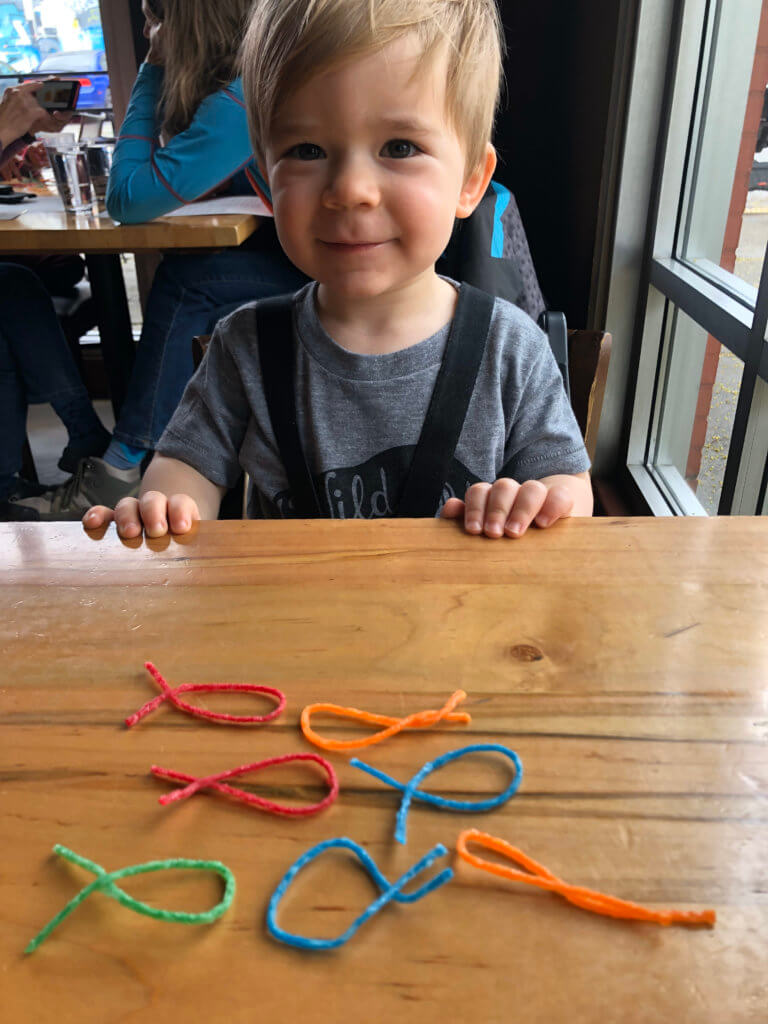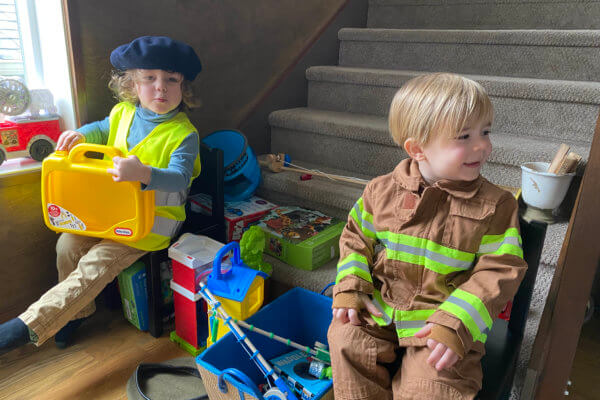Tips for Eating Out with Young Kids
How do you feel when you go to a restaurant with your kids? Relaxed and happy? Anxious and stressed? Do you brace yourself for the disaster or embrace the opportunity to take it public?
We love to use real moments as learning moments here at Sproutable, and restaurants are as real as you get. The reframe is that the challenge of eating out is also the chance at practicing social and executive functioning skills and strengthening your relationship. Try these tips to make eating out with children actually fun (gasp!).

Restaurant only toys
Have a basket of engaging, restaurant appropriate toys that is ONLY for this purpose. Toys include brain boosters like reusable sticker activity books, travel card games ( Spot It, Sleeping Queens, Rat a Tat Cat and Slamwich), On the Go water painting, Squigz, etc. Eeboo and Melissa and Doug are great companies for these kind of games. (No affiliates, just tried and true.)
Kids shop
Let them “shop” in the basket before it is time to go. Have them pack their own restaurant bag, choosing at least 3 items from the basket. Again, this is the basket of toys that ONLY comes out when it is restaurant time. Let them pick! Be excited about what they brought and have them lead the play with you at the restaurant.
Role play
Role play ahead of time so they have time to practice exactly what is expected for their age. This is also helpful because you are being explicit about taking time for training instead of just making assumptions they know how to behave and then being disappointed. At the restaurant you can simply remind, “we are practicing patience,” or “it is expected we stay in our chair,” or “we use inside voices at restaurants.” For even bigger results, role play where YOU are the child and they get to be the parent. Have them teach their stuffies so they can show them good manners.
Screens!
No screen time before the age of 2. You are setting yourself up for major battles as they get older not to mention this is the recommendation from the American Academy of Pediatricians for brain development reasons. For kids older than 2, decide on your own family rules. Our rule was that they were allowed games on the phone only after they had finished eating and excused themselves, thanking the person who was picking up the tab. Be consistent with this otherwise they will beg and whine each time until you cave. It is hard to expect kids to sit through a long dinner, so if you and the other grown ups are hanging around chatting, be prepared for them to get wiggly. Take your littles for a walk before or after food. Show them all the things in the restaurant or watch cars outside.
Games
Long wait for the food? Did they plow through their toys and are ready to start screaming at the top of their lungs? Try these games to quickly distract and redirect:
- Play memory: Take five things from the table (salt shaker, fork, sugar packet, jam etc.) and name each one. Then have them close their eyes while you take one and hide it. Ask which one is missing. Take turns.
- Make up stories. Have them name 2 foods, 2 people, and 2 places then make up a story using those. Take turns.
- Sing songs with action rhymes, such as, Itsy Bitsy Spider, 5 Little Ducks, and Wheels on the Bus
- Play categories: Name all the items you can think of in a category. Examples: food, feelings, or things at the park.
- Play rock – paper –scissors
- Make up a secret handshake together
- Play I went to the zoo: “I went to the zoo and saw an ape. I went to the zoo and saw an ape and a bear. I went to the zoo and saw an ape a bear and a camel” (abc…)
Pro tip: Add baby wipes to the bag regardless of age. This keeps everyone clean and saves you asking for extra napkins again and again.





Comments